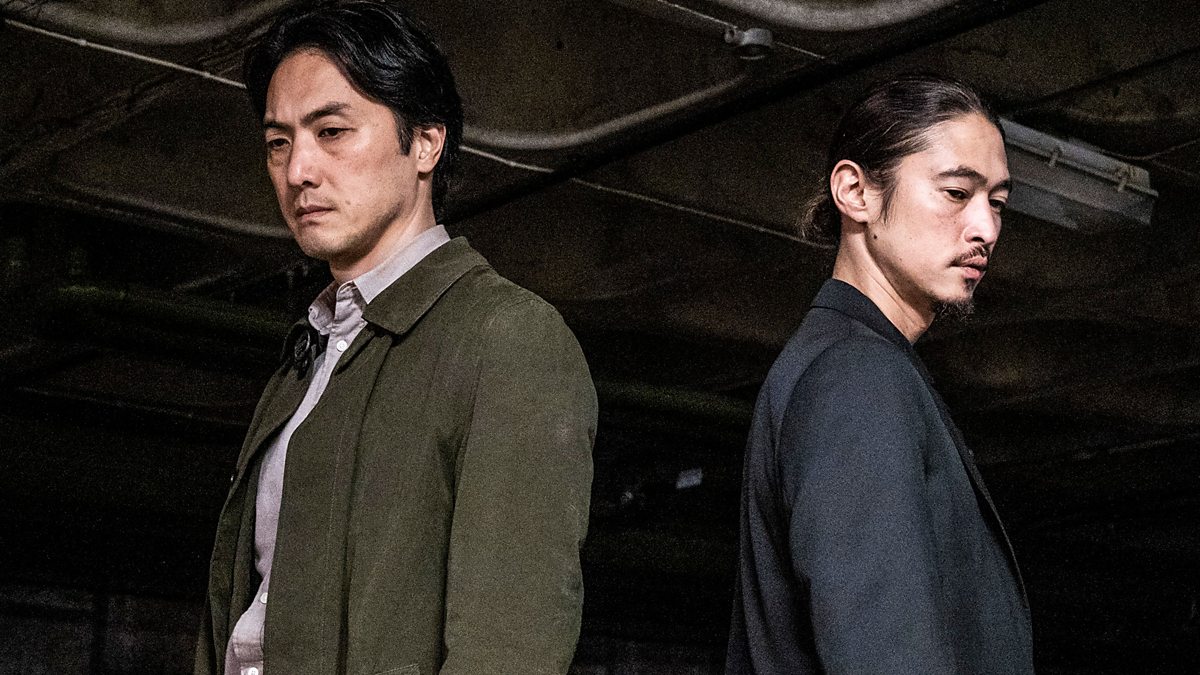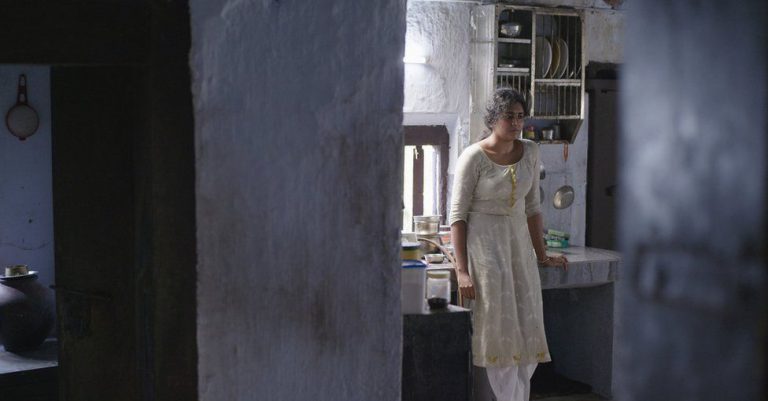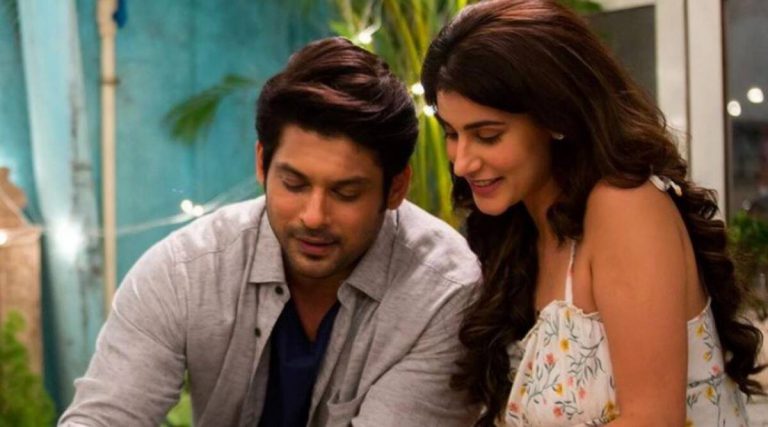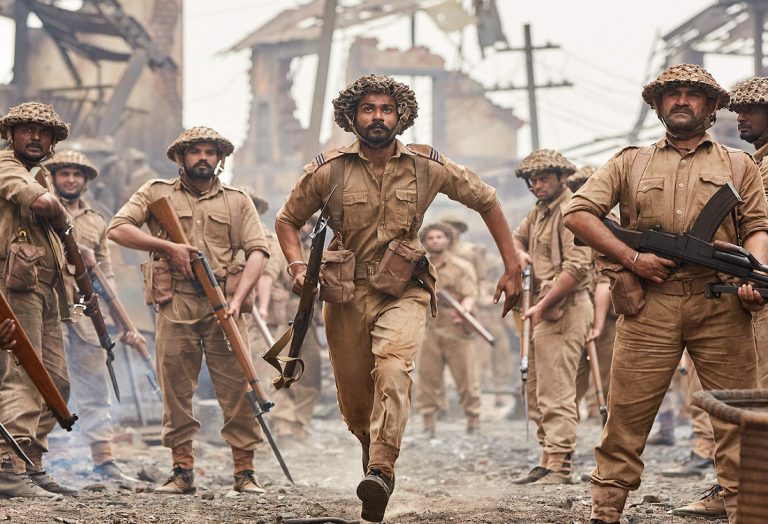Giri/Haji is a marvellous examination of love, the Yakuza, and everything in between
Abhijato Sensarma is from Kolkata, India. His works have been published in The Wire, The Quint, Scroll.in, ESPNCricinfo and McSweeney’s Internet Tendency among other publications.
A good mini-series is a thing of joy; a great one is a thing of beauty.
Most of its kind set up a narrative and deliver a satisfying conclusion within the space of anything between two to a dozen episodes. This brevity presents the perfect middle world between movies and long-running television shows. It is still viewed as financially unviable by many producers, but the emergence of OTT platforms has led to a more open embrace of the mini-series as a format.
Giri/Haji (“Duty/Shame”) (Netflix & BBC Two, 2019) is an amalgamation of distinct cultures and multiple genres. Viewers traverse across two continents – where Japanese and British culture take centre stage – without either of them overwhelming the other. What makes this film-making achievement even more impressive is the sheer breadth of narrative arcs covered within the span of its eight episodes.
Television that evades definition – but in a good way
At its heart, Giri/Haji is a story about the two themes mentioned in its title. The protagonist of the show is Kenzo Mori (Takehiro Hira), a morally ambiguous Tokyo detective who remains conflicted about the nature of his duty throughout the show. The primary cause for this conflict – at least externally – is the life journey of his brother, Yuto. The latter turned from a petty thief to a ruthless enforcer working for a prominent Yakuza family, which are Japanese clans superficially similar to Mafia families in the Western world.
Somewhere along the line, both the brothers betray their duties of protecting family and honour by taking a series of decisions that leads Yuto astray from Tokyo, who is presumed dead in the aftermath of an ambush attempt by his former boss.
The show seems to be a straightforward cop-thriller focusing on the relationship of the two brothers at first glance. But as we progress through the beats of the nearly pitch-perfect script, we are introduced to an array of subplots that could usually belong to different categories of Netflix on their own. We get a Yakuza thriller, a family drama, a London love saga, a gay ghost story and an all-female getaway trip for the price of one. Even then, never does a scene seem to be out of place. This amalgamation pulls in the unacquainted at a rapid pace, and lets go only once the major plot line has been resolved (kind of). More on that later.
A colossal achievement in cross-cultural collaboration
The seamless way in which the Japanese and British cultures blend is down to the effort of everyone involved in the production process. The former is never fetishized, as is the norm in foreign representations of the country and its people.Art often loses too much in translation – both culturally and linguistically – especially when faced with the need to conform to the demands of traditional television. Giri/Haji’s status as a mini-series, however, leads us to a more relaxed portrayal of both the settings compared to what we might have seen in a long-running series where international audiences are often baited with the exotic nature of the lands foreign to us.
The cinematography, led by DOP David Odd and Piers McGrail, remains beautiful and consistent across the two regions. This is achieved by focusing on the background of the cityscape (and later, countryscape) as much as it focuses on the actions and words of the on-screen characters. In the show, ‘location’ is a vivid character operating in silence throughout the narrative, using its unique portrayal to weave together brilliantly choreographed set-pieces with the quieter moments of conflict and harmony.
A fanciful yet grounded portrayal of the Yakuza
The Yakuza sub-plot borrows a great deal from the melodramatic moments usually found in local films as well as Western adaptations. Yuto kills the cousin of a rival Yakuza boss with a family sword, which indicates the charismatic leader Fukuhara is behind the killing. He is framed by his former hitman, of course, but this sparks a mob war where everyone goes after everyone else’s territory and men nonetheless, resulting in chaos throughout the city.
The logic of this storyline is never questioned, which is the first step in making sure the audience accepts where you’re going with the story. Acclaimed actor Masahiro Motoki achieves this by blending elegance with his violent streak to perform the role of the fashionable Yakuza boss. It does not promote violence any more or less than other thrillers, but it certainly brings honour to the entire affair. If that counts for anything. Believability is essential for selling a violence-ridden show that still claims to be a deep narrative. Right from his first appearance to his shocking final scene, he helps maintain the suspension of disbelief. Even when off-screen, the mention of Fukuhara’s name sparks fears of revenge, hot-headedness, and monologues about the price of guilt – all done with a healthy serving of class.
A love story enveloping different shades of affection
The adage goes, “Every story is a love story.”
At its heart, Giri/Haji is a love story too. Even when it isn’t constrained by the romantic subplots, there are a few to be found in the show. Kelly MacDonald masterfully portrays the British Police Inspector Sarah, who is responsible for putting her ex-boyfriend in jail for planting drugs at a site under his investigation. This decision stems out of resentment, because she finds out just a while ago that he was cheating on her. Is this a love story of its own? I’d venture to say it is. And when she falls for the married protagonist of the story, we need only thirty seconds of silence between the two of them at dinner to realise her affection is heading for an unfortunate end once more.
The show makes it a point to show how love and resentment are two sides of the same coin. Her passion for her ex-boyfriend is arguably the reason why she ends up taking a stand that ends up alienating her from the rest of her colleagues at her workplace. Her much stranger attraction towards Kenzo, on the other hand, is the reason she subverts the law, eventually finding herself in a maze of complicity no one can hope to escape from.
The lack of romance between Kenzo and his spouse is the reason the aforementioned sparks turn into something bigger than they should have. The alienation that increases alongside the ageing of a couple once in love lends the show a melancholy tone it retains throughout its run. Even the love-hate relationship between Kenzo and his brother follows a similar trajectory. The former is bound by the duty of blood to the latter. On the other hand, Yuto does everything in his power to reject these same impulses and start a new life with the woman he loves.
The perfect approach to representation
The character who undoubtedly holds together the different tones and experimentations of the show is the charismatic Rodney (Wille Sharpe). He is a half-Japanese, half-British gay rent boy who has the darkest backstory in a narrative filled to the brim with damaged people looking for a way out of their past.
He is the only one who seems to revel in his sins rather than trying to correct them. That is, until his unpredictable companionship results in a bitter end to his relationship with his ex-boyfriend. When the boy kills himself after unsuccessfully trying to call Rodney through the night, we see the latter carry the guilt of being absent when someone needed him the most. It is a hyperbolic and fatal result of his unavailability.
His protégé during his lighter moments while partying in queer clubs and smoking substances one ideally shouldn’t have in the presence of sixteen-year-olds is Kenzo’s daughter, Taki Mori. Soon after she started accompanying Rodney on his detours, he figures out she is gay as well. While the topic is never treated as taboo, the show maintains an impressive balance between neither trivialising both characters’ sexuality nor glossing over what sets the two apart from those around them.
Such an empathetic yet considered approach to portraying homosexuality is maintained by never playing into the preconceived notions of the audience. Rodney remains unapologetically himself, while Giri/Haji remains unapologetically Giri/Haji at the same time, which allows the former character to receive the treatment he deserves.
The art of the atmosphere
Giri/Haji prevails in conjuring its moving parts into a truly stunning feat of television by making stylistic choices that redeem themselves at every step of the way. The cinematography retains artistic ambiguity in the way it becomes intimate in the coverage of nothing at one moment and distant in the coverage of the most significant events at other moments.
The changing ratios and colour palettes ensure a smooth transition between childhood memories, the sins of the past, and the ambivalence of the future. The title cards we witness after the ‘cold opens’ and during debriefs the show are often humorous and always well-timed. They successfully merge with the visual storytelling in the series. This is an intentional feature of the show rather than a glitch – as one gets to know during the finale. Even the soundtrack is understated in the manner it contributes to the scenes where it makes its presence known.
The entire production team deserves a hand for the manner they’ve controlled each aspect of the plot through technical and visual flairs of brilliance that ensure the show remains a coherent whole where no development seems to be too out of place or ridiculous, including the …
Dance sequence of a lifetime
When the show finally gathers its most essential characters on either sides of the globe at various settings for their final acts of catharsis in the series finale, we expect the ending to be as violent as things like these usually get. But without giving away too many spoilers, one simply can’t ignore the dance sequence that takes place right in the middle of it.
The unexpected crescendo works in favour of this unorthodox climax. Even for the first-time viewer, the nature of the sequence adds depth to the remaining minutes of the finale rather than ruining the atmosphere. It is accompanied by the music of the acclaimed classical composer Ólafur Arnalds and the similarly inclined pianist Alice Sara Ott – their piece lingers on in the mind long after the show reaches its conclusion.
The same can be said for the entirety of Giri/Haji. Its characters are so endearingly flawed that even the most avid viewers of modern television will find it difficult to encounter a cast so similarly diverse or impactful in their performances.
A must-watch for those with time on their hands
The cross-section of genres found within the show ensures there’s something to be found for every contemporary viewer within the world Giri/Haji builds for itself. More often than not, one will eventually be drawn into even the most seemingly mundane beats of the show.
But the show’s greatest strength could also be considered as a drawback for the hyperactive modern-day worker – it packs a lot of dense emotions and action across its eight episodes. The addictive nature of the narrative keeps viewers asking for more. So, only watch this show when you have enough space in your schedule to devote your full attention to the brilliance of this show! But you must watch it, for missing out on such an underrated gem will rob you of the joy of engaging with characters and stories of unparalleled depth.
One must end by bringing up the final sequence of the show: it is intentionally ambiguous and bittersweet. The possibility of a second season has been officially ruled out by the executives at BBC – it leaves the door open for the audience to interpret the ending in the manner they want to. Your heart will probably yearn for one reality to transpire, whereas your mind knows the opposite is the more likely path to traverse. Your realisation of the latter will only let you know that Giri/Haji has made you a wiser viewer in its own fantastical way.
Picture Source: Japan Insider









Loved this show and your review was the best I’ve read. For the first time I found humanity in the Japanese culture..never saw it that way before.